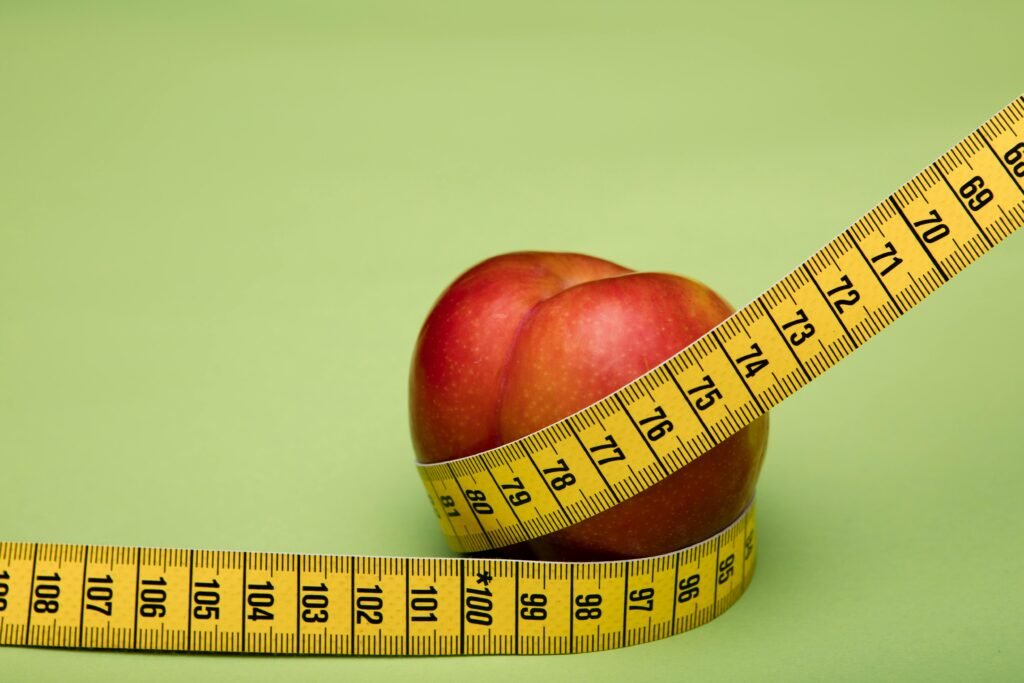Introduction

One query into bodybuilding circles is the capability of exercising does not require a healthy diet for one to notice changes in their health and fitness. In this blog, we will explore the role of nutrition in regards to workout ambitions, exercise without proper diet, and other fundamentals of fitness success.
Table of Contents
Can I Do Gym Without Diet?
Although exercise can be done without dieting, this will only yield little results. Exercise and nutrition work hand in hand to determine the level of results one wants to achieve whether it’s muscle build up or muscular endurance.
To anyone, who thinks of gym workout and has no special diet plan to follow, it is important to comprehend the interconnection between them. Though exercising strengthens bones muscles, raises endurance and fitness levels, foods have the ability to boost these outcomes. Nutrition plays a role in funding workouts, in muscle recovery and as far as body composition is concerned. If you don’t have proper nutrition to back it, you can find your progress slows, or you get plain tired or actually burnt-out. As a result, it is recommended to supplement gym performance with a proper nutrition that includes minerals and vitamins, protein and fats.
What Will Happen if I Go to the Gym Without a Proper Diet?
Failing to eat sufficiently when going to the gym will deny your body the energy it needs reduce the rate of muscles regain and even slow down progress. A proper diet is a nutrition support for the working out and constant improvement of your body for the long-term.
Strength training and high intensity exercises should be fueled by adequate carbohydrates, proteins and fats to supply body energy and for muscles repair and to avoid early fatigue. Without these essential nutrients, you may find that you have less energy, and less desire to continue, which can make sticking to a program difficult. Also, in a case where the body fails to consume enough protein, muscle rebuild may be slow, and you are vulnerable to muscle soreness. You might be missing several things when you go to the gym, and nutrition is like the support system for enhancing gym progress. In simple terms, nutrition serves as an engine, driving muscularity with macronutrients to optimize your exercise regimen and steady, predictable outcomes.
Can I Do Workouts and Still See Good Results Without Having a Diet?
As much as we can sometimes experience some benefits from exercising outside of the restricted and formatted diet, nutrition is the key to getting the best results. – Some participants in exercise may not see the physical changes they desire without perfect form during the physical activity.
Exercise does enhance various factors concerning the general body health including cardiovascular, mental and physical fitness but the need for proper nutritious foods cannot be met by mere exercising. Macronutrient such as protein is essential in the muscle recovery process and carbohydrates will replenish the energy stored in muscular glycogen after training. Without them, you can get tired faster, have difficulties with the increase in the workout’s intensity, or simply injure yourself due to lack of recovery. For muscles it has protein and for energy it has carbohydrates and fats, all this makes the performance during exercise to be fast and efficient. Nutrition also determines metabolic condition which directly determines whether an individual can lose fat or build muscle. Finally, exercise without proper diet has an limitations in the outcomes that can be made and therefore using diet to translate effort into performance becomes crucial.
If I Work Out, Can I Eat Whatever I Want and Not Gain Weight?
Lone exercise does not permit one to eat as much as he or she wants. Taking more calories than used, especially by taking food products that are not healthy, will lead to addition of size. Fitness means eating a healthy diet in order not to negate all the efforts made in the gym.
This implies that although individuals may be using calories to develop lean muscle and melt fat, a high caloric or an imbalanced diet won’t be counterproductive. If you take many calories than what you require, especially from foods that are rich in sugar or fats, your body will deposit the excess quantity in the form of fat tissues and you will put on some weight from time to time. Exercise does raise metabolism slightly and for a while but it is not enough to offset regular overeating. High calorie junk foods are also nutrient sparse; therefore, are not ideal for muscle building or even recovery when compared to whole foods. Consuming nutrient rich foods, including vegetables, lean protein and whole grain foods means that every calorie counted is meeting the body’s fitness needs. Moderation is not a problem, but watching what you eat and making some time for your workouts will keep such habits healthy and permanent, allowing you to turn down the unwanted fat creeping up on your body.
What Happens if I’m Overweight and Go to the Gym but Eat the Same Amount of Calories?
Performing exercises with no change to the calorie consumed may cause a rise in first fitness results but slows down the slimming process. A very small amount of calorie restriction, in combination with exercise, is more beneficial in achieving weight loss goals that will last.
Moreover, weight bearers understand that beginning a workout program can enhance fitness levels, as well as personal stamina and vigor. But if the food intake does not decrease, it appears, that it is rather a challenge to achieve the size loss. To burn fat, it requires negative energy balance, which is taking lesser calories than one uses. It is not about restricting yourself; it is about reducing portion sizes, replacing white, processed carbohydrates and sugars with whole food counterparts and eliminating calorie-dense snacks. Nutrition is clearly an incredibly important part of any exercise program, but the diet must be combined with exercise to provide the best benefit – it will help you lose fat while retaining muscle mass. By steady caloric restriction and incorporating nutrient-dense foods, you design a realistic plan for fat loss and muscles gaining while avoiding feelings of hunger or exhaustion of the body from physical activity.
Is It Pointless to Exercise Without Dieting?

Fresh air and exercise are good for the heart, and doesn’t require changes in the diet. However, for the marvelous and actual experience of a physical change that one would love to love to see then a balance diet in moderate portion augments the rigorous exercise routine tremendously.
Canned food or aerobics can increase cardiac fitness, elevate mood, and tone muscles; combining it with nutritious eating gets fitness over the top. If proper diet is not followed then progress such as muscularity, reductions in bulk or overall fat and weight loss is a much slower process. Protein, fiber and complex carbohydrate foods increases energy level, muscle and metabolism for repairing damaged muscle during exercise assisting in enhancing workout productivity. Structured eating also assists in manage hunger, energy fluctuations and control of binge eating which are contrary to the goals of the process. Thus, fitness is never in vain, but using a healthy diet makes exercise even more effective, as the bodies change more quickly and easily, subsequently achieving better results for the longer term.
How Hard Is It to Gain Muscle Without a Diet?
Muscle gain is tough without protein foods as protein assist in muscle building through repair and growth. Anyone involved in weights cannot afford to lack any of these nutrients because the outcome of the exercise will be minimal and might take a long time.
Muscle gain is made up of the combination of exercise and feeding hence it entails a number of of factors. During strength training, micro damage takes place on muscle fibers in need of amino acids from proteins for repair and development. When the muscles have no protein, regenerative processes are decelerated, and a person can experience fatigue, soreness, and even injuries.” Carbohydrates are also very essential because the body gets needs glycogen to be replenished after workouts for energy in strength and endurance. Protein food sources including lean meats, dairy products, beans and legumes accompanied by complex carbohydrates like brown rice or oats forms the basic framework for Muscle Meal building. Finally, training the muscles without supplementing them with nutrients leaves your body starved of the basic necessary ingredients for muscle development.
How Do I Lose Weight With No Diet and Just Exercise?
Exercise helps in weight loss but it is known to do it slowly without any modification on the diet. Routines change eating habits and thus caloric intake while exercising thus ensuring better weight loss and sustainable outcome.
Lose weight is all about using up more calories than you take in, It is basic science. Exercise can help create this deficit but it’s normally very difficult to burn the calories that you consume through exercise. For instance, while one hour of cardio would help h: Burn 500 calories, it only takes a little snack or a high calorie meal to undo all the work. When exercising also incorporating portion control, mindful eating and foods rich in nutrients you get a multiplier effect on the calorie shedding effected by workouts. This does not necessarily equal dietary restrictions; it means that even removing sugary beverages, or cutting down on processed foods can go a long way. Both exercise and diet mean giving equal emphasis to either side, making one aspect more effective as compared to the other, and more sustainable.
Can I Gain Weight by Only Doing Exercises Without Diet?

Majority of people may not bulk up without stressing on the need to take more calories and increase the consumption of protein foods. Some strength gains are possible by doing just exercises, but diet must include lots of healthy fats and proteins.
For such people desiring to put on some muscles and gain some mass, consuming more calories than burning is key especially from protein and energy-dense foods. Movement tones muscles, but in most cases, you won’t see the muscles growing big or getting stronger as desired due to poor feeding. Protein-rich diets, for instance in form of eggs, lean meats and proteins derived from green sources boosts muscle repair. Protein and fiber and all the necessary calories that come with it such as the health some calories that come with avocados or nuts but no extra body fat. This approach helps to ensure that the weight that is gained is in the form of lean muscles mass and not any form of fat more so body fat thus enabling that a person over time gains muscle strength apart from having a better-looking body.
The Role of Protein in Muscle Growth
High protein foods are an important feature in the diet because proteins are linked with muscle rebuilding. During exercise, muscle fibers rupture and have to be repaired by proteins that are broken down into amino acids. Proteins simply take a longer period of time to build back up when damaged, resulting in muscle soreness that lasts longer and, over the long term, actual loss of muscle tissue. This way you make sure that for every meal you’re feeding muscles the protein that it needs for recovery and grow stronger. Lean foods like chicken, fish, egg or lean proteins like soya beans, beans etc helps in creating new tissues, increasing strength and helps to build muscles and achieve the ripped look.
Balancing Calories: Quality vs. Quantity
Energy balance may be a cornerstone in weight control but it is the KIND of energy that counts. Eating partially lean proteins, whole grains, nutrient-dense vegetables and healthy fats enhance energy, decrease hunger, and enhance recuperation. Meal planning can make it easier to sustain this deficit if your goal is weight loss or this surplus when your goal is muscle gain, but eating high quality foods make it possible to make every calorie count towards your goal. Adequate nutrient dense lifestyle supports metabolism, blood sugar control, and lack of cravings while providing nutrient dense muscle, meaning optimal nutrition and performance without sacrifice for athlete.
The Importance of Hydration in Fitness
It is very important and crucial for anyone and everybody to drink a lot of water when involving in any form of working out. Fluid maintains body temperature, transports nutrients, enhances digestion, all of which are important during physical activity. It helps to concentrate, avoids cramps in muscles, and decreases exhaustion, helping have a good, enjoyable exercise session. Lack of water causes dehydration and the signs include headaches, poor coordination, and reduced strength-making it hard to achieve fitness. Electrolytes are added to the articles taken to replenish the lost minerals especially when receiving high intensity training to increase the body’s endurance and reduce the time it takes to recover from a workout session as well as keep the body energized to withstand the impacts of the training.
Why Combining Exercise and Diet Leads to Optimal Results.
Of all the exercise and nutrition combinations one must realize that, exercise and diet go hand in hand in maintaining reasonable fitness and health outcomes. Although exercise enhances the physical system, heart health, and mood, diet supports these actions by supplying the best nutrients for performance enhancement. A balanced diet gives strength, enables the body to recuperate fast and build muscle mass, and it also helps to gain or lose weight depending on the plan. Together, they form a harmonious balance: physical activity is known to enhance fitness levels and diets are known to help maintain enhanced fitness levels. This synergy is important in bringing about visible positive change and overall promotion of general health and sound mindedness that keeps everyone fit.
Conclusion
Training without proper regards to diet may give some effect but having the proper fitness, body building or just plain health and fitness, depends much on diet and exercise. Eating good food ensures that there is adequate energy for exercising, helps in building and repairing body muscles, and a healthy diet will have a positive impact in one’s life. You definitely make the base for constructing constant advancement, perceivable results, and healthier, happier life when exercising daily without refusing nutritious food.
FAQ:
Is it possible to build muscle without following a strict diet?
What people need to understand is that it is quite possible to grow muscles while not necessarily following a strict diet, though it is difficult. Muscle gain is a process that requires some focus on dieting; therefore, general dieting is a must for obtaining outstanding outcomes.
How important is diet when trying to lose weight while going to the gym?
Diet was found to be an important component of weight loss since it determines the amount of calories to be consumed. This I understand that exercise reduces calories but a well measured portioned diet reduces fat and provides energy during workouts for optimal outcome.
What are the risks of working out without proper nutrition?
There is a common cliché that says that for one not to grow muscle and gain strength, one should eat like a horse which simply means if one doesn’t take adequate nutrition, he or she will feel tired after exercising and take longer to get back on his or her feet. If the required nutrients are not input, then, there is tendency for muscle wane and overall goals and health degrade with time.
Can I see gym results with exercise alone and no diet changes?
A fat breakdown and muscle build-up can only be achieved through diet because exercise on its own may bring very limited impact. Hybrid nutrition helps improve training in the gym and develop a healthy habit that is beneficial both for temporary and long-term goals.
How does nutrition impact energy levels and performance during workouts?
The right diet keeps muscles energized to workout by providing the required stamina and power. These nutrients directly affect the frequency and intensity of workouts and are needed to prevent fatigue, and help rebuild muscles.